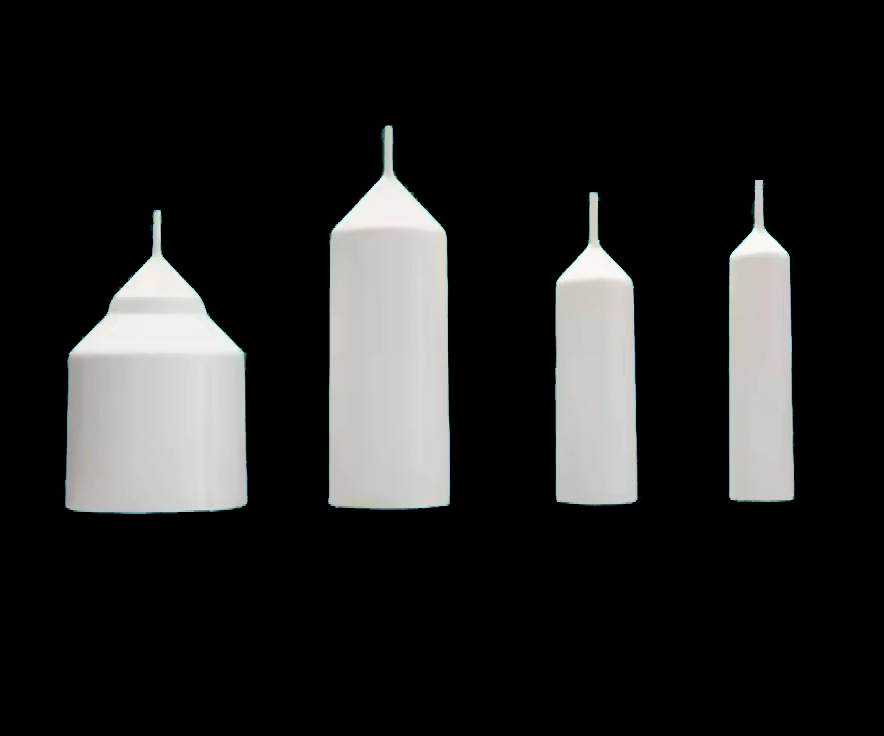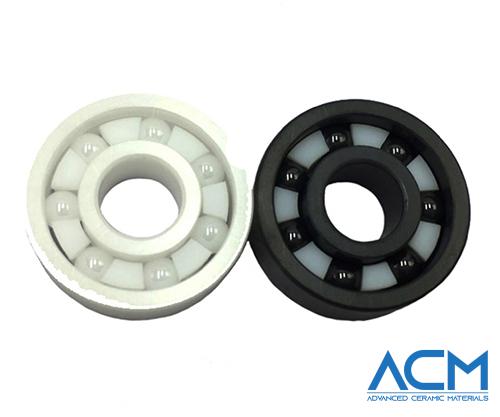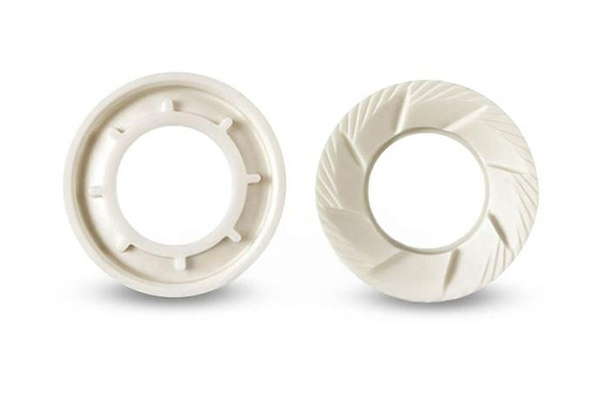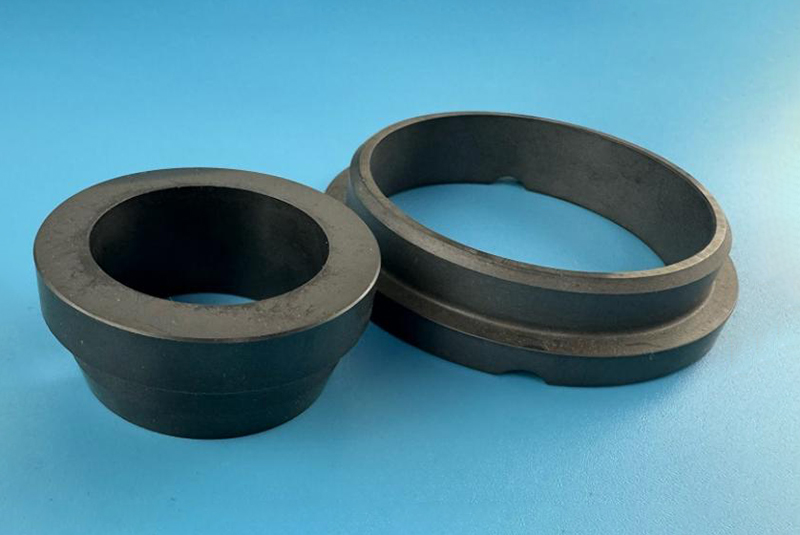Ceramic Bearing Balls: Precision and Strength Standards
1. Introduction
Ceramic bearing balls are precision-engineered spheres made from advanced ceramic materials, utilized in various applications where high performance and reliability are paramount. Unlike traditional metal bearing balls, ceramic counterparts offer superior properties such as higher hardness, lower density, and enhanced corrosion resistance. These characteristics make ceramic bearing balls ideal for use in industries ranging from aerospace and medical devices to high-precision machinery and consumer electronics.
Compared to their metal counterparts, ceramic bearing balls exhibit several notable advantages:
- High Precision: Ceramic materials possess extremely low thermal expansion coefficients, ensuring dimensional stability even under fluctuating temperatures.
- Enhanced Strength: They offer superior compressive strength and resistance to wear and deformation, making them suitable for high-load and high-speed applications.
- Corrosion Resistance: Ceramic bearing balls are inherently resistant to corrosion and chemical wear, extending the lifespan of bearings in harsh environments.
- Lightweight: The lower density of ceramic materials contributes to reduced overall weight, improving energy efficiency and performance in various mechanical systems.
This article aims to examine the precision grades and compressive strength requirements of ceramic bearing balls across different applications. Additionally, it introduces relevant American standards (e.g., ABEC ratings) and discusses their practical significance in ensuring the quality and performance of ceramic bearings in real-world scenarios.
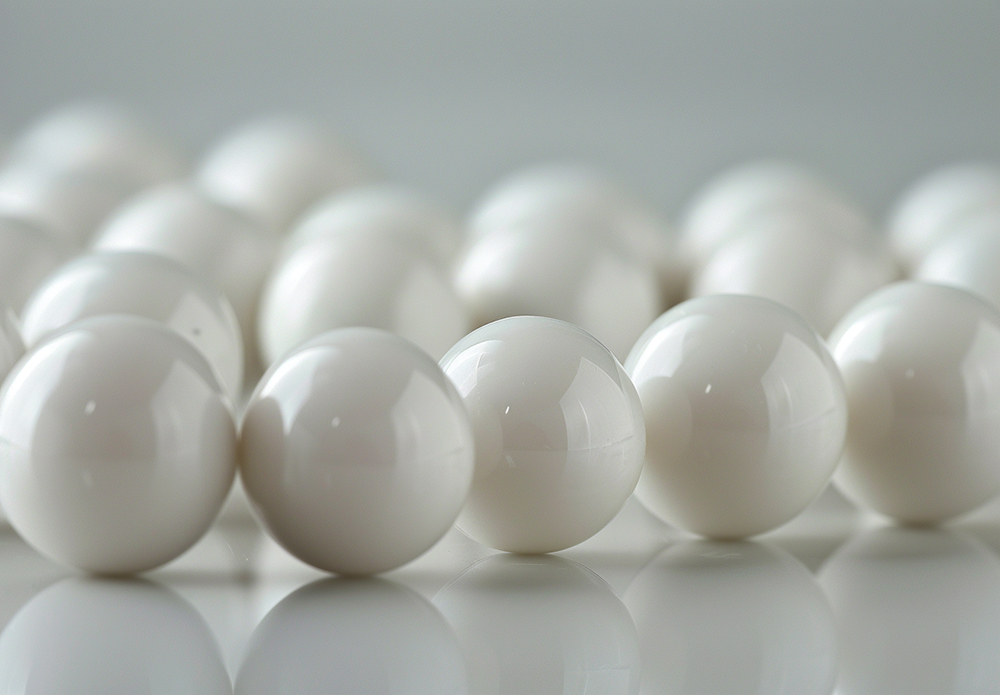
2. Precision Grades of Ceramic Bearing Balls
2.1 Importance of Precision Grades
The precision grade of ceramic bearing balls significantly influences the overall performance of the bearing. High precision ensures smoother operation, reduced friction, and increased longevity. Variations in precision can lead to uneven wear, increased heat generation, and potential failure under operational stresses.
Different applications demand varying levels of precision. For instance, aerospace and medical equipment require the highest precision grades to maintain stringent performance standards, whereas general industrial machinery may operate effectively with moderate precision levels.
2.2 Detailed Explanation of ABEC Standards
Definition of ABEC Grades (ABEC 1 to ABEC 9)
The Annular Bearing Engineers' Committee (ABEC) rating system classifies bearings based on their precision and performance:
- ABEC 1: Basic precision suitable for low-speed, low-load applications.
- ABEC 3: Standard precision for general-purpose use.
- ABEC 5: Higher precision for applications requiring smoother operation.
- ABEC 7: Advanced precision for high-speed and high-performance applications.
- ABEC 9: Ultra-precision for specialized applications demanding the highest levels of performance.
Dimension Tolerances and Surface Quality Requirements for Each Grade
Each ABEC grade specifies tighter dimensional tolerances and superior surface finishes as the grade increases:
- ABEC 1: Tolerances up to ±0.02 mm, surface roughness Ra up to 0.2 μm.
- ABEC 3: Tolerances down to ±0.015 mm, surface roughness Ra up to 0.15 μm.
- ABEC 5: Tolerances down to ±0.01 mm, surface roughness Ra up to 0.1 μm.
- ABEC 7: Tolerances down to ±0.005 mm, surface roughness Ra up to 0.05 μm.
- ABEC 9: Tolerances down to ±0.002 mm, surface roughness Ra up to 0.02 μm.
2.3 Precision Selection in Different Applications
High-Speed Precision Equipment (e.g., Aerospace, Medical Devices)
These applications require ABEC 7 or ABEC 9 grade ceramic bearing balls to ensure minimal friction, high stability, and consistent performance under extreme conditions.
General Industrial Machinery
ABEC 3 to ABEC 5 grades are typically sufficient, providing a balance between performance and cost for standard operational demands.
Consumer Electronics
ABEC 1 to ABEC 3 grades are often appropriate, meeting the precision needs of devices like hard drives and cooling fans without incurring unnecessary expenses.
3. Compressive Strength of Ceramic Bearing Balls
3.1 Importance of Compressive Strength
Bearing balls are subjected to different types of loads depending on their application. High compressive strength ensures that the balls can withstand substantial forces without deforming or failing, which is crucial for maintaining operational integrity and longevity.
The choice of ceramic material directly affects the compressive strength of the bearing balls. Materials with higher inherent strength properties are preferred for applications involving intense mechanical stresses.
3.2 Factors Affecting Compressive Strength
Types of Ceramic Materials (e.g., Silicon Nitride Si₃N₄, Aluminum Oxide Al₂O₃)
- Silicon Nitride (Si₃N₄): Known for its exceptional strength and toughness, making it ideal for high-stress applications.
- Aluminum Oxide (Al₂O₃): Offers good compressive strength and is widely used due to its balance of performance and cost.
- Zirconium Dioxide (ZrO₂): Provides excellent fracture toughness and strength, suitable for demanding environments.
- Silicon Carbide (SiC): Extremely hard and strong, with high thermal conductivity, making it suitable for high-temperature applications.
Manufacturing Processes (Sintering, Heat Treatment, etc.)
Advanced manufacturing techniques such as high-temperature sintering and precise heat treatment are essential to maximize the compressive strength of ceramic bearing balls by enhancing their microstructure and reducing defects.
Surface Treatments and Coatings
Surface treatments like polishing and coating with materials such as diamond-like carbon (DLC) can significantly improve the compressive strength and resistance to wear and corrosion.
3.3 Compressive Strength Requirements in Different Applications
Heavy-Duty Industrial Applications
Require ceramic bearing balls with high compressive strength (e.g., Si₃N₄ or ZrO₂) to handle intense loads and prolonged operational stresses.
Light-Duty Precision Devices
Can utilize materials with moderate compressive strength (e.g., Al₂O₃) where extreme loads are not a primary concern.
High-Temperature or Highly Corrosive Environments
Demand ceramic bearing balls with superior strength and stability (e.g., SiC or ZrO₂) to withstand elevated temperatures and corrosive substances without degradation.
4. Comparison of Precision Grades and Compressive Strength Across Applications
4.1 Tabular Analysis
Table 1: ABEC Precision Grades for Different Applications
| Application | ABEC Grade Required |
|---|---|
| Aerospace | ABEC 9 |
| Medical Devices | ABEC 7 |
| High-Precision Machinery | ABEC 7 |
| General Industrial Machinery | ABEC 3 - ABEC 5 |
| Consumer Electronics | ABEC 1 - ABEC 3 |
Table 2: Typical Compressive Strength of Various Ceramic Materials
| Ceramic Material | Compressive Strength (MPa) |
|---|---|
| Silicon Nitride (Si₃N₄) | 2400 |
| Aluminum Oxide (Al₂O₃) | 2000 |
| Zirconium Dioxide (ZrO₂) | 2100 |
| Silicon Carbide (SiC) | 2700 |
Table 3: Impact of Manufacturing Processes on Compressive Strength
| Manufacturing Process | Effect on Compressive Strength |
|---|---|
| Sintering at High Temperature | Increases strength through densification |
| Heat Treatment | Enhances microstructural integrity |
| Surface Polishing | Reduces surface flaws, improving strength |
| Coating Applications | Can either enhance or slightly reduce strength based on the coating material |
4.2 Case Studies
Ceramic Bearings in Aerospace Applications
In aerospace, ceramic bearings must withstand extreme pressures and temperatures while maintaining high precision. The use of ABEC 9-grade silicon nitride bearings ensures stability and reliability, crucial for critical flight components.
High-Precision Bearings in Medical Devices
Medical equipment such as surgical robots and imaging systems requires ABEC 7 grade ceramic bearings made from aluminum oxide to provide the necessary precision and durability, ensuring smooth and accurate operation.
Automotive Industry’s Compressive Strength Demands
Automotive applications, particularly in high-performance engines and transmission systems, utilize zirconium dioxide ceramic bearings. These bearings meet the high compressive strength requirements necessary to endure continuous mechanical stresses and high-temperature conditions.
5. Manufacturing Processes and Quality Control of Ceramic Bearing Balls
5.1 Overview of Manufacturing Processes
Raw Material Selection
Choosing high-purity ceramic powders is fundamental to producing high-quality bearing balls. Purity affects the final properties, including strength, precision, and durability.
Forming and Sintering of Bearing Balls
The forming process involves shaping the ceramic powders into spherical forms through pressing or injection molding. Sintering at elevated temperatures then consolidates the material, enhancing its mechanical properties and achieving the desired density.
Surface Finishing and Precision Machining
Post-sintering, ceramic bearing balls undergo surface finishing processes such as grinding and polishing to achieve the required surface smoothness and dimensional accuracy. Precision machining is critical to meet the stringent specifications of different ABEC grades.
5.2 Quality Control Standards
Dimensional and Tolerance Inspections (Based on ABMA Standards)
Quality control involves meticulous measurement of the bearing balls’ dimensions and tolerances using tools like coordinate measuring machines (CMM) to ensure compliance with ABMA (American Bearing Manufacturers Association) standards.
Material Property Testing (Based on ASTM Standards)
Mechanical properties such as hardness, compressive strength, and fracture toughness are evaluated according to ASTM (American Society for Testing and Materials) standards to verify the material quality and performance.
Surface Quality and Defect Detection
Advanced inspection techniques, including optical microscopy and non-destructive testing (NDT), are employed to detect surface imperfections and internal defects, ensuring that only defect-free bearings proceed to the final stages of manufacturing.
6. Conclusion
Ceramic bearing balls play a pivotal role in modern industrial applications, offering unmatched precision and strength compared to traditional metal bearings. Understanding the precision grades and compressive strength requirements is essential for selecting the appropriate ceramic material for specific applications. Adhering to American standards, such as ABEC ratings and ABMA specifications, ensures that ceramic bearings meet the highest quality and performance benchmarks. As technology advances, the importance of ceramic bearing balls in enhancing the efficiency and reliability of various mechanical systems continues to grow, driving innovation across numerous industries.
About Advanced Ceramic Materials (ACM):
Advanced Ceramic Materials (ACM) specializes in providing high-quality ceramic bearing balls tailored to meet diverse industrial needs. Our expertise ensures reliable and precise solutions to enhance your mechanical systems. Contact ACM to learn how our products can support your applications.
{{item.content}}
LEVE A REPLY
{{item.children[0].content}}
{{item.content}}





